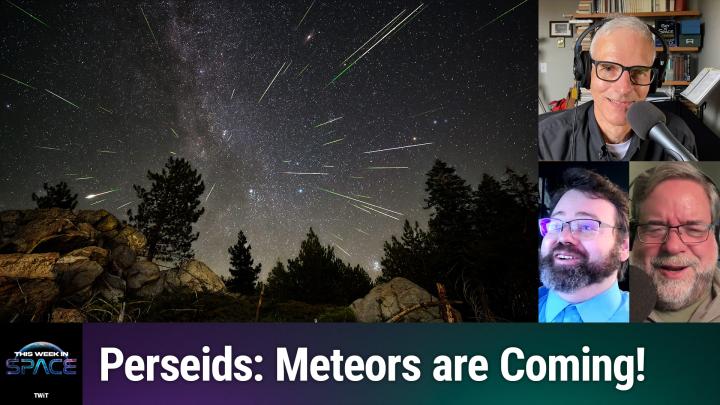The Perseids: A Spectacular Celestial Show Not to Be Missed
AI created, human edited.
Every August, the night sky comes alive with the breathtaking display of the Perseid meteor shower. In a recent episode of This Week in Space, astronomer and author Steve Fentress joined hosts Rod Pyle and Isaac Arthur to delve into the history, science, and observation tips for this annual celestial event.
The Perseids are expected to be particularly impressive this year, peaking around August 12th. Fentress explained that the favorable moon conditions would allow observers to witness up to one or two meteors per minute under dark sky conditions. The shower's increased activity is due to the Earth passing through the debris trail left behind by comet 109P Swift-Tuttle, which orbits the sun every 133 years.
Fentress shared the fascinating history of meteor shower observations, noting that Italian astronomer Giovanni Schiaparelli first identified the connection between the Perseids and comet Swift-Tuttle in the 19th century. This groundbreaking discovery was made through meticulous observations and mathematical calculations, showcasing the power of dedicated astronomical study.
The conversation also touched on the vibrant colors observed in meteors, which Fentress attributed to different chemical elements in the meteoroids and Earth's atmosphere. He explained that the colors are a visual indicator of the elements present, with blue indicating magnesium, yellow signifying iron, and red and yellow resulting from nitrogen and oxygen in the atmosphere.
For those eager to witness the Perseids, Fentress offered valuable tips to maximize the viewing experience. He recommended finding a dark location away from light pollution, dressing warmly to combat the chill of the early morning hours, and focusing observations between 3 AM and dawn when the radiant point is highest in the sky.
In addition to the Perseids discussion, the episode also featured insights on the future of planetariums and the importance of community engagement in astronomy education. Fentress highlighted the need for planetariums to embrace new technologies and become valuable community resources to remain relevant in the modern era.
To learn more about the Perseids, the history of meteor shower observations, and the exciting world of astronomy, be sure to listen to the full episode of This Week in Space featuring Steve Fentress. Take advantage of this opportunity to gain a deeper appreciation for the wonders of the night sky and the dedicated astronomers who help us understand its mysteries.
